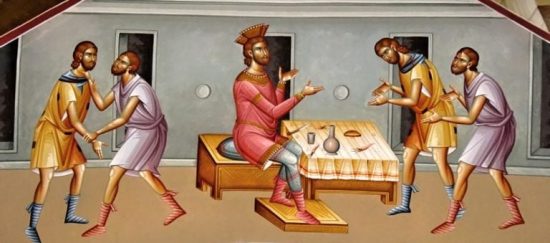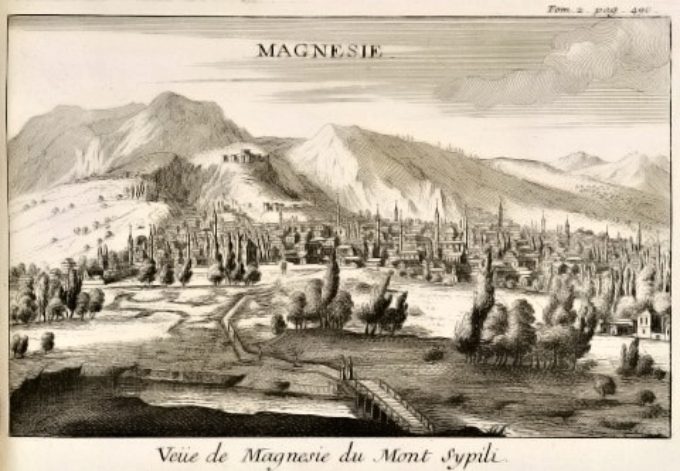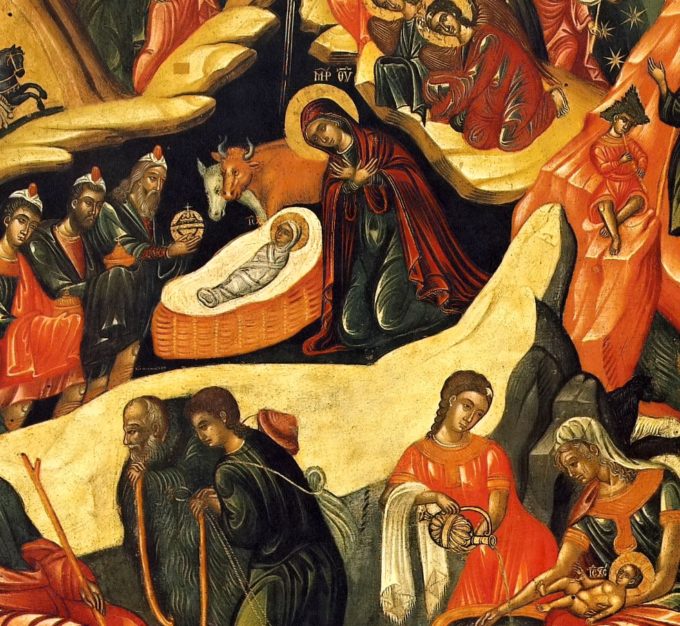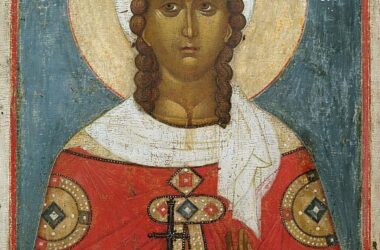For you are the seal of my apostleship in the Lord.
3 My defense to those who examine me is this: 4 Do we have no right to eat and drink? 5 Do we have no right to take along a believing wife, as do also the other apostles, the brothers of the Lord, and Cephas? 6 Or is it only Barnabas and I who have no right to refrain from working? 7 Who ever goes to war at his own expense? Who plants a vineyard and does not eat of its fruit? Or who tends a flock and does not drink of the milk of the flock?
8 Do I say these things as a mere man? Or does not the law say the same also? 9 For it is written in the law of Moses, “You shall not muzzle an ox while it treads out the grain.” Is it oxen God is concerned about? 10 Or does He say it altogether for our sakes? For our sakes, no doubt, this is written, that he who plows should plow in hope, and he who threshes in hope should be partaker of his hope. 11 If we have sown spiritual things for you, is it a great thing if we reap your material things? 12 If others are partakers of this right over you, are we not even more?
Nevertheless we have not used this right, but endure all things lest we hinder the gospel of Christ.
The Gospel of Matthew 18, 23- 35
23 “Therefore, the kingdom of heaven is like a king who wanted to settle accounts with his servants. 24 As he began the settlement, a man who owed him ten thousand bags of gold was brought to him. 25 Since he was not able to pay, the master ordered that he and his wife and his children and all that he had be sold to repay the debt.
26 “At this the servant fell on his knees before him. ‘Be patient with me,’ he begged, ‘and I will pay back everything.’ 27 The servant’s master took pity on him, canceled the debt and let him go.
28 “But when that servant went out, he found one of his fellow servants who owed him a hundred silver coins. He grabbed him and began to choke him. ‘Pay back what you owe me!’ he demanded.
29 “His fellow servant fell to his knees and begged him, ‘Be patient with me, and I will pay it back.’
30 “But he refused. Instead, he went off and had the man thrown into prison until he could pay the debt. 31 When the other servants saw what had happened, they were outraged and went and told their master everything that had happened.
32 “Then the master called the servant in. ‘You wicked servant,’ he said, ‘I canceled all that debt of yours because you begged me to. 33 Shouldn’t you have had mercy on your fellow servant just as I had on you?’ 34 In anger his master handed him over to the jailers to be tortured, until he should pay back all he owed.
35 “This is how my heavenly Father will treat each of you unless you forgive your brother or sister from your heart.”
Saint Nicolaj Velimirovich
We read again tonight (it was held on March the 4th 1984) from the Holy Gospel the comprehensive parable of the unmerciful debtor who owed to his master ten thousands coins. In our money it would be about five million lei (appraisal which belongs to father Sofian, who took into account the currency rate of that time)
His master forgave him. It was enough that this servant to ask for a small favor from his master and this one with unspeakable kindness forgave all his debt.
But the tears with which this man asked for mercy from his master hadn`t dried yet when he met on his way one of his humble debtors who owed him a very small sum of money – one hundred dinars – one hundred lei. He took him by his neck to strangle him, shouting with malice: `Pay me what you owe me.` (Matthew 18,28)
He was forgiven for millions and he was ready so strangle his brother for only one hundred lei.
When we hear such a story we feel full of revolt towards the totally inhumane behavior of the one who was forgiven for so much and he didn`t want to forgive anything. But let us do not rush to condemn too much that inhumane man because we condemn ourselves, because we behave in the same way with our fellow men. The parable from the Gospel is one in which the debtor with ten thousands coins can be anyone of us – who is a debtor with many sins towards God and the master who forgives his debt is God. The one who was in debt with one hundred lei is anyone of our brothers. The unmerciful debtor who was forgiven for everything and he didn`t want to forgive the small debt of his helpless debtor represents anyone of us who are forgiven by God for everything and we don`t want to forgive the smallest offence to our neighbor.
By this parable the Savior widens the meaning of the words from the Lord`s prayer where we say:
And forgive us our trespasses, as we forgive those who trespass against us. (Matthew 6, 12).
We say this prayer daily and we also say daily the fifth demand from the Lord`s prayer, but we don`t know if this demand `forgive us` which is in connection with our statement `as we forgive` is not a condemnation we ask from God because we often behave with our brothers like the unmerciful debtor from the parable : although we are forgiven for a lot we don`t forgive at all or we forgive very little; but we ask shamelessly to be forgiven all the time as if God didn`t see and know our hypocrisy and wickedness.
But why are we obliged to forgive?
The Holy Fathers tell us that forgiveness is the elder daughter of love. Who can`t forgive, can`t love. Who can`t love the people, can`t love God. To be able to love God we must be reconciled with our brothers. Therefore we must forgive to live in good understanding with our fellow men and God because we, the humans, can`t live isolated in society. We need each other.
As the brothers from a family, the clerks from an office or the workers from a section of a factory need to communicate with each other in different moments of their life, each one of us needs to communicate with the other one, but imagine that all these I called brothers, clerks or workers would be in conflict with each other because from different reasons they would tell offending words to each other or one of them would have sown dissension and hate among them. Being quarreled they all are quiet. They work in anger. They argue in their minds. They boil with rage. And from time to time quarrels, insults, threatening and even bloody fights or crimes break out. Such a life is terribly burdensome: it is a life of hell, of torment. There are families where the husbands hate each other and they don`t speak with each other for weeks. There are brothers or relatives who were in good relationships for a while and afterwards because of intrigues or some offending words they quarreled and instead of reconciling as soon as possible they kept silence and angriness and enmity deepened and got older and they find it very difficult to reconcile.
There are neighbors who are quarreled and who don`t speak with each other for decades and when they meet incidentally they don`t know where to look for not seeing each other. I wonder: such people who are usually Christians and need God how can they pray or ask for forgiveness from God if they can`t forgive each other?
Humanly speaking it is easier to revenge and hit instead of controlling yourself and forgiving. But to revenge and hit is a proof of weakness and incapacity to control your despicable instincts of human nature. To control yourself and forgive is a proof of a great magnanimity and a proof that in you dwells the Spirit of God Who is a Spirit of peace. Who is able to control himself in time and doesn`t respond at evil with evil and forgets the offence he uprooted any trace of enmity and wickedness; because the one who is forgiven feels humiliated and ashamed and doesn`t dare to say anymore offending words or hate. But there are some cases when between two people who are both guilty towards each other one of the humbles himself and asks for forgiveness from the other one but that one doesn`t want to hear about forgiveness.
What can be done in such cases Instead of answering directly, I`ll read first to you a happening which took place in the pas tat a monastery from Egypt, happening which I copied from the book called Patericon. Here it is what this book says: that one brother was upset on another one. Meaning they were angry with each other but that brother wanting to apologize went to reconcile with him. So knocking at his door that one didn`t want to open and receive him. When he saw he didn`t open to him he got upset even more and going to an elder told him what happened to him, how he went to apologize and reconcile with that brother who didn`t receive him and didn`t stay to talk with him and didn`t open the door for him. The elder told him: Think my son and realize that maybe you have a thought in your heart that you are not guilty with anything and didn`t offend him at all only he offended you and he is the only guilty one. In this way you justify yourself and accuse him.
If it is so know brother that this is why God doesn`t let him open to you and receive you because you don`t go to him with real regret but with falsity. Go instead and say in your heart that it is not only him guilty but you are as guilty and if possible do not condemn him at all. In this way God will make him feel humbleness and he will humble himself and reconcile with you.
Hearing this, the brother humbled himself in his heart and promising that he would follow the advice of the elder went again with humbleness to that brother who was upset on him and apologized.
Knocking at the door of the cell that one heard him immediately and opened for him and before he bowed and apologized that one bowed humbly saying: `forgive me brother that I upset you` Thus lovingly and from the bottom of their soul kissing each other they fully rejoiced.
By this simple story we are urged, if one of us has such an enemy who doesn`t want to forgive him, to do as that brother who followed the advice of the elder; namely not to blame just that one whom we call our enemy, but also to seek our own guilt. If we are honest with ourselves we will remember we harmed him as well and offended him or slandered him or caused him a trouble which we forgot but he remembers.
This is what the Holy Fathers advise us as well to humble ourselves, defaming ourselves and insulting ourselves and confessing before God our sins not our brother`s. Doing like this we will gain a great peace within ourselves. The elders say that in the case someone doesn`t want or can`t forgive or reconcile with his brother, he will be deprived by the help and grace of God.
In relation with such cases I will quote in what follows another word even if some of you know it. They say that during the persecutions against Christians when the pagans tortured and killed the Christians for their faith in Christ then they caught two Christians who had a great enmity between themselves and threw them in prison on the next day being decided to take them out and torture them and kill them. Being in prison for the same faith in Christ but being angry with each other for a long time one of them humbled himself in his heart and said to the other one:
`Brother, you see tomorrow they will take us out at their judgment and they will torture us and kill us and we will go to the Lord. For this reason we should leave aside the discord and enmity which was and still is between us and reconcile with each other and forgive each other before our death,to be pure when receiving the tortures and death for our faith and love in Christ and in this way we will become worthy to receive the crowns of martyrdom from the hands of our Savior and we will be received in the legions of martyrs. And by adding these he bowed saying:
`Forgive me, brother, to be yourself forgiven by God.` But that one being possessed by the wickedness hidden in his heart didn`t want to forgive him.
Then the next day after the daybreak, they took them out of the prison to torture them and kill them. Then the one who didn`t want to reconcile with his brother and forgive him, seeing they wanted to cut him and being afraid, renounced at Christ and the other one, believing in the name of the Lord, was killed. The one who denied Christ was asked by the executioner: `Why yesterday when you were beaten and thrown into jail you didn`t deny Christ for not being tortured anymore?
And that one answered: `when I left my God and didn`t reconcile with my brother then I was deprived by His help and remaining estranged of Him I denied Christ.
There is no other worse state for a human soul than this one : to be unable to forgive your brother even in the hardest moments from your life. Unfortunately there are such cases even in our days when someone who quarreled with someone else wants to reconcile and the other instead of helping him and behave gently and delicately takes him in derision and turns his back to him in despise. In such circumstances we must search our conscience and see if we are not guilty and if it is not the case to renounce at the pride we have and humble ourselves for real and do like that brother from the Patericon who followed the elder`s advise.
If we don`t calm him in this way we should try to forgive from our heart all the offences and injustices that one caused us and pray to God to make him reconciled and help us to forgive him for real as the saint archdeacon Stephan forgave those who killed him with stones praying for them according to the example of the Savior.
As a rule of behavior regarding such people we are advised not to slander theese men to anyone even if they slander us but on the contrary to speak well of them showing their qualities for any man has qualities not only flaws. And as much as possible to do them good directly or indirectly and pray for them so that God may enlighten them and turn them to kindness and help them realize they are wrong too for they are human too. Behaving gently humbly and with real kindness with all those around us and keeping our minds far of any wickedness and cunning towards our enemies and all our fellow men we will gain a great peace in our inner being a peace which only God can give us and beside this peace of our heart we will become worthy of a real forgiveness from God and then we will say:
And forgive us our trespasses,as we forgive those who trespass against us (Matthew 6, 12).
I end this word about forgiveness with the urge of Saint Paul the Apostle towards all Christians therefore to each one uf us : Be kind and compassionate to one another, forgiving each other, just as in Christ God forgave you. (Ephesenians 4, 32). Amen!






